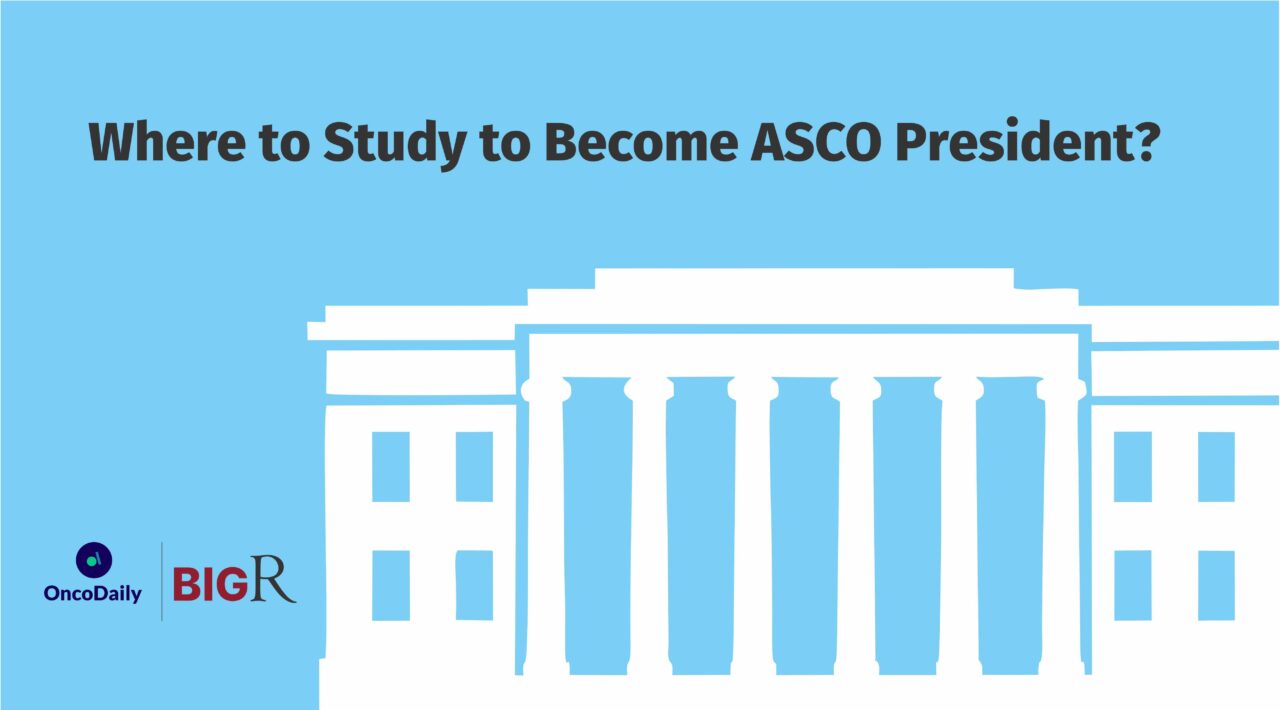
Where to Study to Become ASCO President: 2025 Institutional Rankings
Good doctors come from many places, but leaders often share the same roots. Presidents of the American Society of Clinical Oncology (ASCO)—those who shape how we fight cancer globally—often train at just a few remarkable institutions.
Every parent dreams of giving their child the best education, believing these decisions open doors to a brighter future. In cancer medicine, certain schools consistently produce leaders, guiding them to the top positions in oncology.
If becoming an ASCO president is your goal, knowing these schools matters.
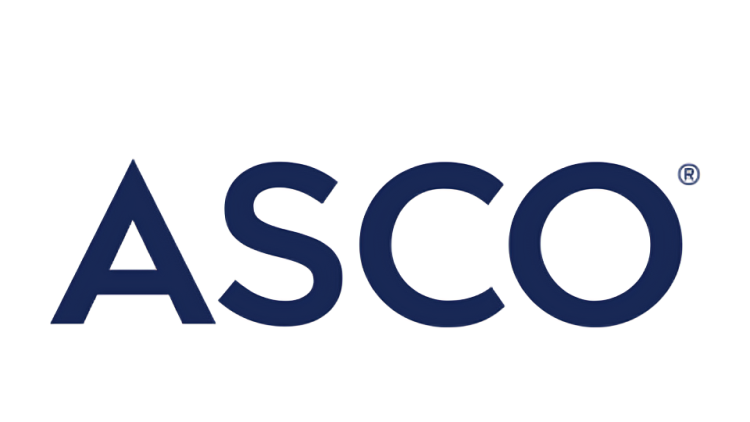
Harvard University and Affiliated Hospitals: A Proven Leader
Harvard, including its renowned hospitals Beth Israel, Dana-Farber, and Mass General, leads with 17 ASCO presidents having trained or studied there. Notable Harvard-trained leaders include George P. Canellos, who significantly advanced lymphoma treatment, and Bruce A. Chabner, a pioneer in chemotherapy.
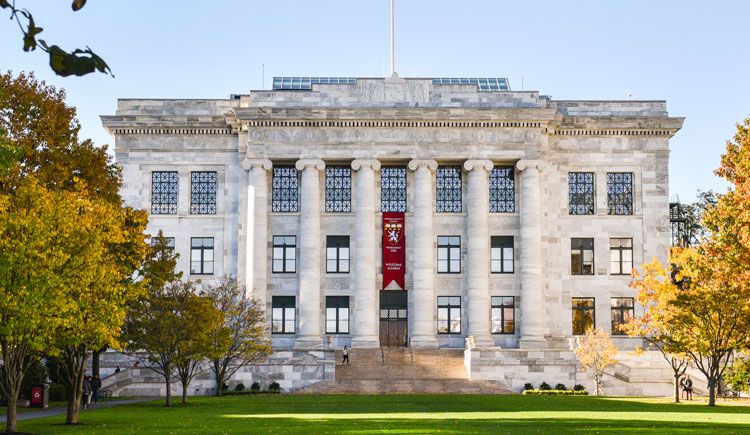
Harvard Medical School / Photo from hms.harvard.edu
National Cancer Institute (NCI): Training Ground for Innovators
The National Cancer Institute, America’s leading cancer research center, is second with 11 presidents completing training there. Vincent T. DeVita and Richard Schilsky, whose innovations revolutionized cancer research globally, exemplify the type of visionary leaders emerging from NCI.
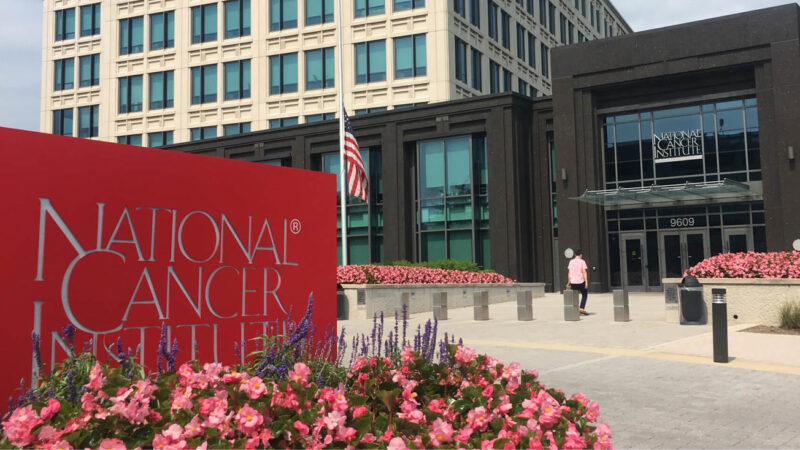
National Cancer Institute / Photo from cancer.gov
Columbia University: Balancing Academics with Real-World Skills
Columbia University follows closely, contributing ten ASCO presidents. Columbia’s College of Physicians and Surgeons alone graduated eight presidents, including James F. Holland, “one of the founding fathers of cancer chemotherapy“, and Larry Norton, whose advancements in breast cancer therapy are globally recognized.
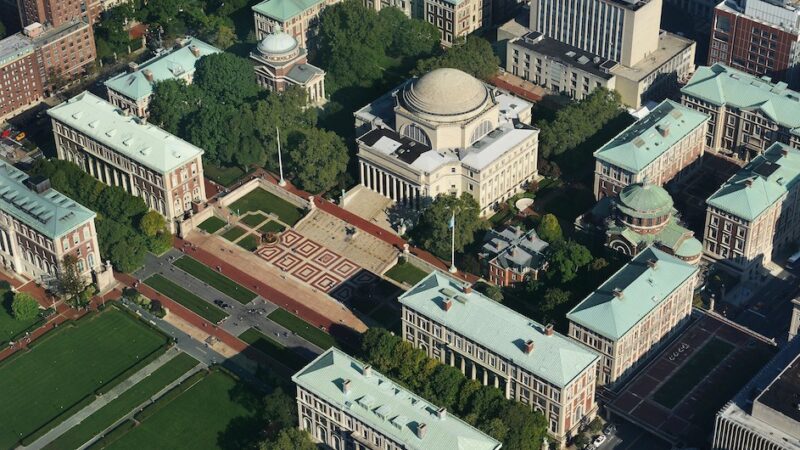
Columbia University / Photo from columbia.edu
Yale University: Cultivating Thoughtful Leaders
Yale University, an Ivy League research university in New Haven, Connecticut, has produced six ASCO presidents, including giants like leukemia pioneer Emil Frei and renowned breast oncologist Eric P. Winer.
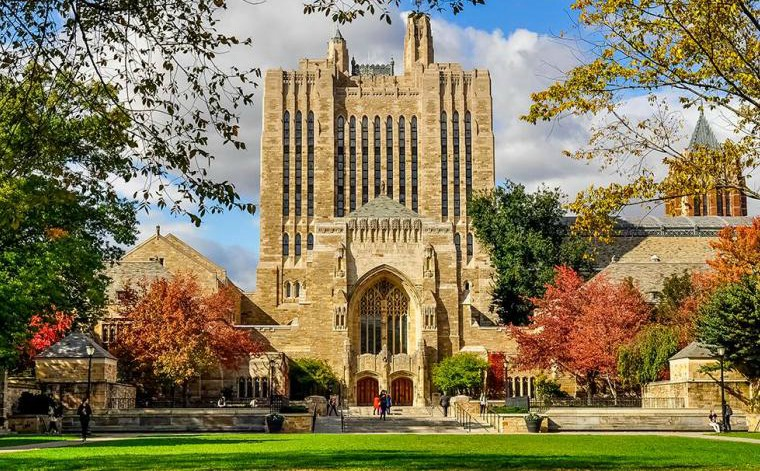
Yale University / Photo from ycwd.memberclicks.net
Stanford, Case Western, Weill Cornell, MSKCC, University of Chicago: Disciplined Excellence
Stanford, Case Western Reserve, Weill Cornell Medicine, Memorial Sloan Kettering Cancer Center (MSKCC), and the University of Chicago have each produced five ASCO presidents. Clifford Hudis of MSKCC, now CEO of ASCO, and Eric J. Small, the current ASCO President-Elect, exemplify the disciplined approach characteristic of these institutions.
Johns Hopkins, Pittsburgh, University of Pennsylvania: Influential Yet Unassuming
Johns Hopkins, the University of Pittsburgh, and the University of Pennsylvania have each shaped four ASCO presidents. These institutions have fostered renowned innovators such as Martin D. Abeloff (trained at Johns Hopkins) and Bernard Fisher (trained at Pittsburgh).
Top 10 Institutions to Become ASCO President (Combined Ranking):
1. Harvard University and Hospitals (17 presidents)
2. National Cancer Institute (NCI) (11 presidents)
3. Columbia University (10 presidents)
4. Yale University (6 presidents)
5 to 10. Stanford University, UCSF, Weill Cornell Medicine, Memorial Sloan Kettering Cancer Center, Case Western Reserve University, University of Chicago (5 presidents from each institution)
Undergrad: Building the Future Leaders
Top undergraduate institutions play a critical role as well. Yale leads, producing three ASCO presidents, followed by Stanford, Princeton, and Columbia, each with two. These schools provide an essential foundation, combining rigorous academics with leadership opportunities crucial in shaping future oncology leaders.
Top Undergraduate Choices:
- Yale University (3 presidents)
- Stanford University (2 presidents)
- Princeton University / Columbia University (2 presidents each)
Medical Degree: Columbia’s Clear Dominance
For earning an MD, Columbia stands out, having awarded medical degrees to eight ASCO presidents—more than double its closest competitors, Harvard and Case Western Reserve, each with four. Columbia’s medical school sets the bar high, cultivating excellence and preparing future oncology leaders for global impact.
Top Medical Schools:
- Columbia University (8 presidents)
- Harvard Medical School (4 presidents)
- Case Western Reserve University (4 presidents)
Postgraduate Training: Harvard and NCI Lead the Way
When choosing residency or fellowship programs, Harvard hospitals lead with twelve presidents trained, followed closely by NCI with ten. UCSF is another significant institution, producing five presidents. These programs excel at converting medical graduates into specialized leaders capable of shaping oncology’s future.
Top Postgraduate Training Institutions:
- Harvard University hospitals (Beth Israel, Dana-Farber, Mass General) (12 presidents)
- National Cancer Institute (NCI) (10 presidents)
- University of California, San Francisco (UCSF) (5 presidents)
Why These Institutions Matter
Great doctors can emerge from anywhere, but oncology leaders frequently share educational backgrounds from these key institutions. These schools cultivate more than medical skills—they build visionaries who transform global cancer care. Harvard and Columbia instill leadership through rigorous expectations and historical depth. NCI fosters innovation under intense focus, Yale encourages thoughtful compassion, and institutions like MSKCC prioritize disciplined, patient-focused medicine.
A Roadmap for Future Leaders
If leading oncology is your ambition, your educational path matters greatly. Undergraduate study at Yale or Stanford, medical school at Columbia or Harvard, and specialized training at Harvard hospitals or NCI provide a clear, proven route. Following this path means joining a tradition of excellence and leadership in cancer care.
Choose these institutions not just for prestige, but for their unmatched track record in preparing leaders who redefine the fight against cancer.
About ASCO
Founded in 1964 by seven pioneering cancer physicians, the American Society of Clinical Oncology (ASCO) began with a bold mission—to improve care for people with cancer at a time when treatment options were scarce, stigmas were widespread, and outcomes were grim. Over the next five decades, ASCO helped define modern oncology. Membership grew from seven to over 50,000. National cancer research funding expanded from under $200 million to over $5 billion annually. The number of approved therapies surged from a handful to more than 170.
Through its global community, educational leadership, and the research funding power of Conquer Cancer, the ASCO Foundation, the Society continues to drive progress. While cancer remains a formidable challenge, ASCO is at the forefront of the next era—where technology, biology, and collective expertise will shape a future of longer, better lives.
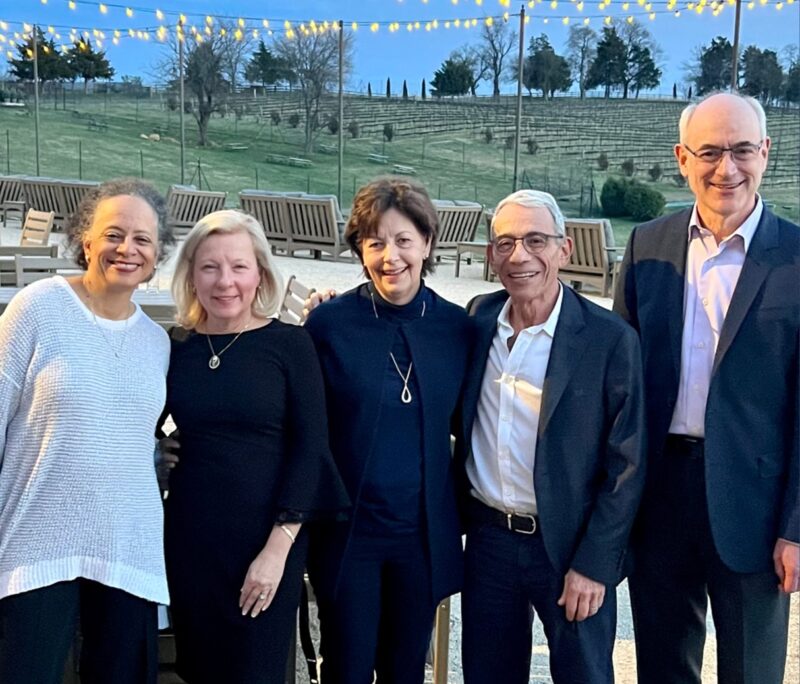
Five ASCO Presidents. From left to right: Dr. Lori Pierce, Dr. Robin Zon, Dr. Lynn Schuchter, Dr. Winer, and Dr. Everett Vokes. / Photo From the ASCO Connection
ASCO Presidents
- Elizabeth A. Mittendorf, MD, PhD, MHCM
- Eric J. Small, MD, FASCO
- Robin Zon, MD, FACP, FASCO
- Lynn M. Schuchter, MD, FASCO
- Eric P. Winer, MD, FASCO
- Everett E. Vokes, MD, FASCO
- Lori J. Pierce, MD, FASTRO, FASCO
- Howard A. “Skip” Burris III, MD, FACP, FASCO
- Monica M. Bertagnolli, MD, FACS, FASCO
- Bruce E. Johnson, MD, FASCO
- Daniel F. Hayes, MD, FACP, FASCO
- Julie Vose, MD, MBA, FASCO
- Peter Paul Yu, MD, FACP, FASCO
- Clifford A. Hudis, MD, FACP, FASCO
- Sandra M. Swain, MD, FACP, FASCO
- Michael P. Link, MD, FASCO
- George W. Sledge Jr., MD, FASCO
- Douglas W. Blayney, MD, FASCO
- Richard Schilsky, MD, FACP, FSCT, FASCO
- Nancy E. Davidson, MD, FASCO
- Gabriel N. Hortobagyi MD, FACP, FASCO
- Sandra J. Horning, MD, FASCO
- David H. Johnson MD, FACP, FASCO
- Margaret A. Tempero, MD
- Paul A. Bunn, Jr., MD, FASCO
- Larry Norton, MD, FASCO
- Lawrence H. Einhorn, MD, FASCO
- Joseph S. Bailes, MD
- Allen S. Lichter, MD, FASCO
- Robert J. Mayer, MD, FASCO
- James O. Armitage, MD, FASCO
- John H. Glick, MD, FASCO
- Karen H. Antman, MD, FASCO
- George P. Canellos, MD, FASCO
- Bernard Fisher, MD, FASCO
- Martin D. Abeloff, MD
- Robert C. Young, MD, FASCO
- Harvey M. Golomb, MD
- Robert C. Young, MD, FASCO
- Charles A. Coltman Jr., MD, FASCO
- B.J. Kennedy, MD
- Samuel Hellman, MD, FASCO
- John R. Durant, MD, FASCO
- Sydney E. Salmon, MD
- Philip S. Schein, MD, FRCP, FASCO
- Saul A. Rosenberg, MD, FASCO
- John E. Ultmann, MD
- Emil J Freireich, MD, FASCO
- Charles G. Moertel, MD
- Albert H. Owens, MD
- Vincent T. DeVita Jr., MD, FASCO
- James F. Holland, MD, FASCO
- Joseph Bertino, MD, FASCO
- Rose Ruth Ellison, MD
- Bayard Clarkson, MD, BSN, OCN, FASCO
- Paul P. Carbone, MD
- Kenneth B. Olson, MD
- Jesse L. Steinfeld, MD
- Paul Calabresi, MD
- Emil Frei, MD, FASCO
- George C. Escher, MD
- Fred J. Ansfield, MD
- Michael J. Brennan, MD, FACP
- Harry F. Bisel, MD
This article was brought to you by OncoDaily, in collaboration with The Boston Institute for Global Rankings (BIGR).
About OncoDaily
OncoDaily is a leading global oncology media network, the home of OncoDaily.com, OncoDaily TV, OncoDaily Medical Journal, and CancerWorld Magazine. Our vision is to be the global voice of oncology, embodying our motto: “Cancer doesn’t take a day off, neither do we.”
About the Boston Institute for Global Rankings (BIGR)
The Boston Institute for Global Rankings (BIGR) is an academic initiative committed to advancing transparent, data-driven evaluation of excellence across universities, medical centers, and healthcare professionals worldwide. With a focus on performance, impact, and innovation, BIGR aspires to shape meaningful benchmarks for the future. Think BIGR.
-
Challenging the Status Quo in Colorectal Cancer 2024
December 6-8, 2024
-
ESMO 2024 Congress
September 13-17, 2024
-
ASCO Annual Meeting
May 30 - June 4, 2024
-
Yvonne Award 2024
May 31, 2024
-
OncoThon 2024, Online
Feb. 15, 2024
-
Global Summit on War & Cancer 2023, Online
Dec. 14-16, 2023
